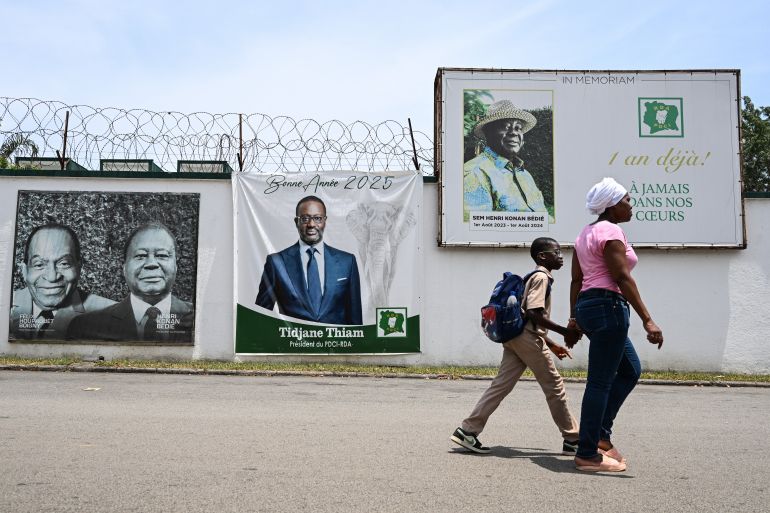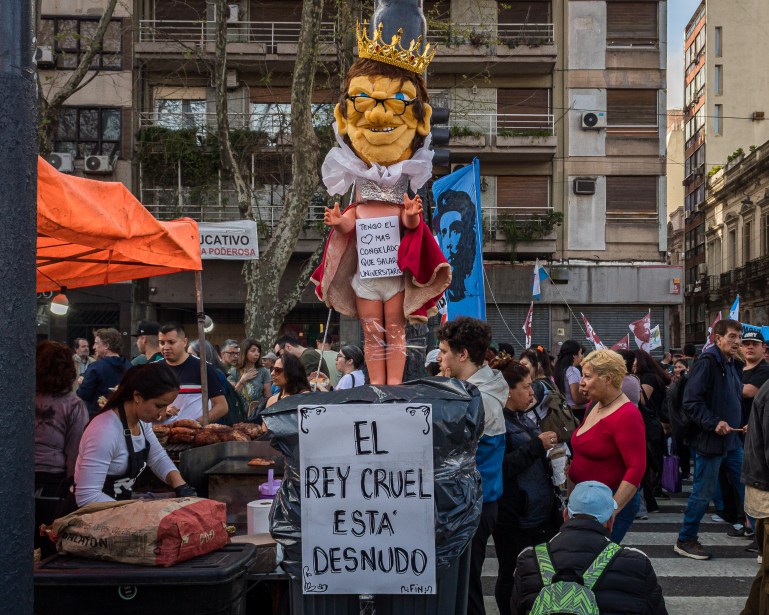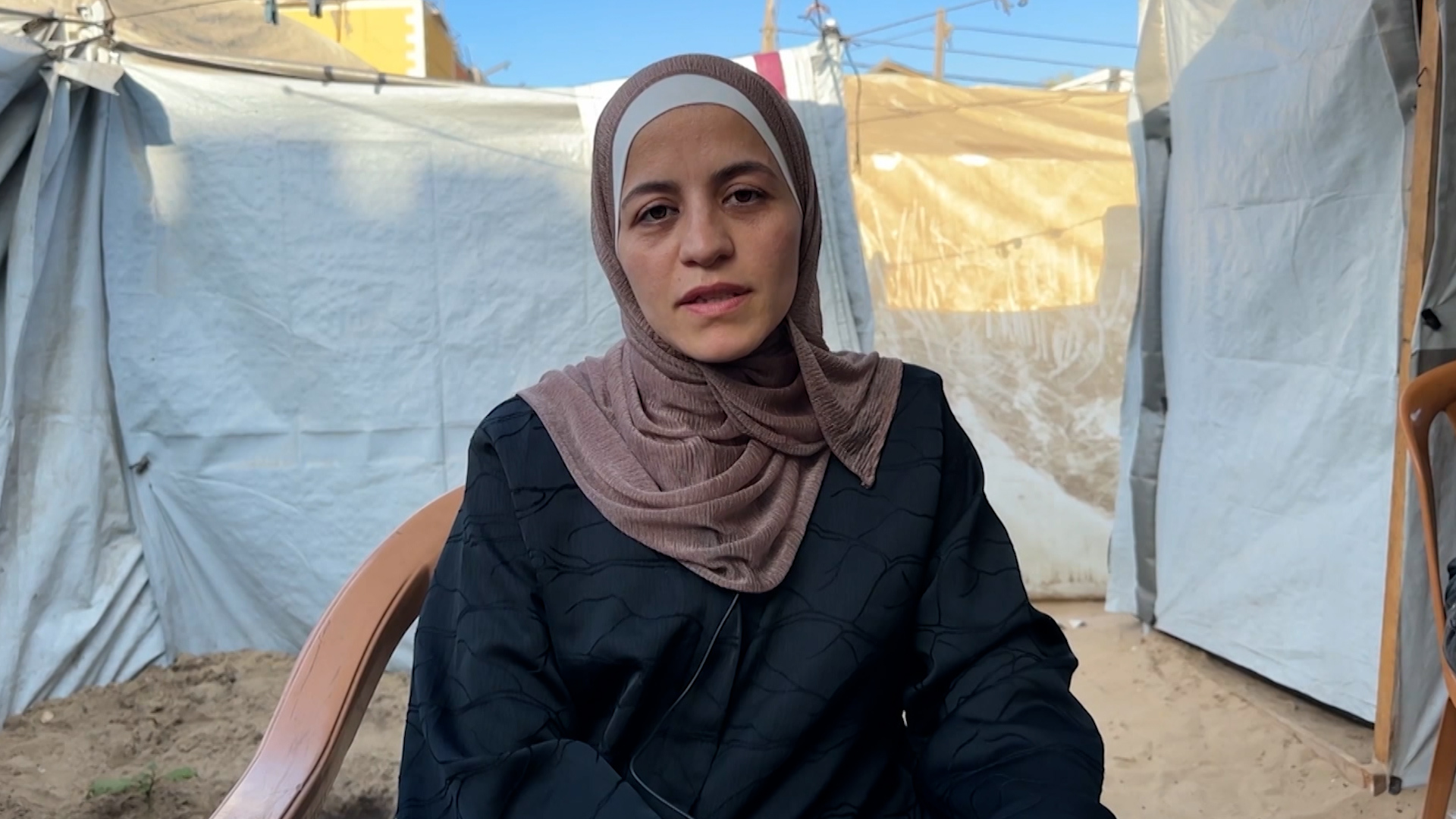Abidjan, Ivory Coast – At the famed Sapeurs-Pompiers crossroad, food stalls compete for customers’ attention along a stretch of hip local eateries in the working-class neighborhood of Yopougon in the city of Abidjan.
But the bustling intersection in the country’s economic capital – normally packed with crowds late into the night – now empties out much earlier than usual, as residents rush home before dark in fear of election-related violence and because of the lingering presence of two police trucks always parked nearby.
Recommended Stories
list of 3 itemsend of list
Since October 10 when the campaign for this weekend’s presidential elections began, the trucks have been patrolling there daily. They are among some 44, 000 police and soldiers the government has deployed nationwide to, it says,  , “guarantee a secure and peaceful election”.
As the vote on Saturday draws to a close, many people in the West African country are feeling uneasy because the officers at the Sapeurs-Pompiers crossroad stay inside their vehicles.
“Ivorians are living in fear”, said Jean, a 42-year-old frail-looking civil servant who, like others interviewed by Al Jazeera, asked to be identified only by his first name due to fears of retaliation from the authorities.
We don’t leave before sunrise, even before we leave for work. People are preoccupied”, he said.
While it’s common for many Ivorians to rise before dawn to get to work, driving in the dark during times of political uncertainty brings up painful memories, such as the September 2002 coup attempt, which occurred early in the morning and resulted in the death of at least 270 people.
Fears and political clampdown
West Africa’s second-largest economy and regional powerhouse is Ivory Coast. But the country of some 32 million people has a dark history of political and electoral violence.
Residents and analysts predict that the election will turn tense this year because the two main opposition leaders are prohibited from running, the president is running for a fourth term, and there have been protests and mass arrests prior to the results.
Tensions rose in the country in June after four prominent opposition figures were excluded from the electoral roll. Laurent Gbagbo, a former president, and Tidjane Thiam, a former banker who was once seen as a rising star, were two of them.
“These disqualifications, while grounded in law, are perceived by some as politically motivated and have heightened tensions and triggered protests”, said the International Republican Institute, a Washington, DC-based nonprofit that is observing the election.
Alassane Ouattara, 83, who has been in power since 2011, announced he was running for a fourth term in office, a move that was made possible by a constitutional amendment passed during one of his previous administrations.
Others on the ballot with him include Simone Gbagbo, the former first lady, and three lesser-known political figures: Jean-Louis Billon, Henriette Lagou, and Ahoua Don Mello, none of whom is seen as a serious challenger.
The two main opposition parties, whose candidates were turned down for the elections, held a rally on October 4th, saying the goal was to engage the government.
But just two days before, the National Security Council announced it was banning all gatherings.
The opposition continued to hold its position despite the ban and promised to continue holding the rally on October 11th. That day was a turning point, as the authorities escalated their crackdown to stop people from gathering.
Security forces encircled protesters in Blockhauss, a city neighborhood known for its opposition ties, and fired tear gas at them as they fled. The tactic was repeated by anti-riot officers elsewhere across the city, and there were clashes between protesters and police. More than 700 people were detained, some the day after being arrested, and others the following day.
It’s unclear how many have since been released, but more than 80 have been sentenced, some in what prosecutors labelled “acts of terrorism”.

Human rights groups, including Amnesty International, have condemned the arrests: “Peaceful protest is a right, not a privilege”, Marceau Sivieude, Amnesty’s regional director for West and Central Africa, said in a statement.
“Anyone who has been detained solely for exercising their human rights peacefully should be released right away.” All those detained must, in any event, be granted prompt access to a lawyer and their families notified timeously”.
aiming for “an open and peaceful election.”
A day after the clampdown, the opposition announced that they were calling for daily protests until election day.
We have been calling for dialogue for months, according to Bredoumy Soumaila, a party representative who lives in exile and represents Thiam’s party, to Al Jazeera by phone. “But we saw that the process was already flawed and rigged”.
He claimed that there are “more than 100 opposition supporters in jail,” with the majority of them youth leaders, and some are currently hiding or exiled.
“So, we have decided to protest”, added Soumaila.
Given that gatherings are officially prohibited, the opposition’s call for daily protests may not work for some activists. Among them, longtime government critic Pulcherie Gbalet has taken a more forceful approach.
Former trade union leader Gbalet has become a prominent voice for the opposition in the nation as the majority of its leaders and supporters are currently in prison or exile.
Through social media, she has urged Ivorians to “stop everything”, including working or going to school, and said people should block main roads to paralyse the country and make sure the elections are cancelled.

Gbalet previously served two jail terms, the first of which was in 2020, when she was imprisoned for eight months after organizing peaceful protests against Ouattara’s third term. She was released on provisional terms in April 2021 but was detained again in 2022 after the authorities accused her of colluding with foreign agents.
Although she is not a stranger to threats, the rising tensions surrounding the election of this year have made her more extreme, leading to her hiding somewhere in the nation, where she continues to challenge the authorities.
“They are looking for me. I’m being threatened. Trailed”, the 52-year-old who is the president of the civil society platform Alternative Citoyenne Ivoirienne, told Al Jazeera.
They won’t listen to us, they say, though, if we don’t block everything.
Even though she doesn’t go out on the street herself due to the risk of arrest, she still uses her voice, decrying the president’s constitutional changes and what she sees as increasing restrictions on the country’s democratic space.
The upcoming vote is unconstitutional, and Ouattara’s fourth term would be unconstitutional, according to Gbalet, and it lacks legitimacy.
“You must not participate in any activity concerning this sham of an election, of which the result we already know”, she said to fellow Ivorians, speaking in front of the national flag, in a video published online on October 12. She thinks the incumbent’s process was rigged in advance.
‘ Force them to give in ‘
Gbalet’s call for a shutdown hasn’t received much media attention. But in this volatile atmosphere, according to local media, at least five people have died in multiple crackdowns against protesters this month.
In a statement released earlier this month, the government said it would “take all necessary measures to maintain order and security.”
“Since the introduction of multiparty politics, the presidential election]in Ivory Coast] has always been a source of tension”, political analyst Geoffroy Kouao told Al Jazeera.

“In 1995, there was an active boycott that resulted in three deaths. We had 300 fatal elections in 2000, which were brutal. In 2010, the presidential election officially led to 3, 000 deaths”, he said, referring to the post election violence and ensuing civil war. Additionally, 85 people died in 2020.
“The problem is our political class”, added Kouao, referring to the crop of leaders that haven’t changed since the 1990s. Successive leaders have instead focused on stifling competition, he said, rather than adhering to democratic principles.
“With this leader]Ouattara], democracy has completely lost its substance, as he governs the country with an iron fist”, said Boga Sako Gervais, an Ivorian human rights activist.
He “uses laws to restrict public freedoms,” Gervais told Al Jazeera from exile, “He controls both the executive branch and parliament, but he also controls the judiciary.”
“Under Ouattara, since 2011, freedoms of opinion, thought and expression have been criminalised”, he added. The head of state’s regime has slid into a dictatorship, according to the statement.
The justice ministry said in a statement on October 17 that “restrictions” were currently “strictly limited in time” for the duration of the election period as well as “targeting a specific type of contestation” – those defying the current protest ban.
Additionally, it stated that the right to peacefully protest “may be subject to restrictions in accordance with the law,  , and which are necessary in the interests of national security, public safety, or public order.”
As election day nears, Gbalet’s call for a total shutdown reflects the frustration felt by many. She vehemently argued that we must force them to give in and that the government should halt the polls and start a political dialogue with the opposition.
A close ally of Gbalet said her call for a shutdown was “the only option to bring the government to the negotiating table”.
The Ivorians’ civil society platform’s member, Donald Gahie, claimed that her call is the result of the authorities’ refusal to allow them to demonstrate peacefully. “Despite the appeals and other proposals from political parties, civil society, and even the UN, the government has remained stubborn”.

‘ Go back to the negotiating table ‘
Many Ivorians are more measured than some members of civil society, but some prefer a forceful approach.
Adrienne Amani, 40, who spoke to Al Jazeera outside a social service building in Yopougon, said she would urge political leaders to “go back to the negotiating table”.
“We must engage in negotiations to bring about peace.” If the people of this country are not at peace, they won’t go to the polls”.
In 2020, voter turnout was already at just over 53%.
There is unease among Ivorians because memories of past electoral violence still loom large. Up to 1, 500 people have already fled across the border east into neighboring Ghana, according to reports, while others are stocking up on food and fuel, and local businesses are reducing operations.
At a newspaper stand in Koumassi, another district of Abidjan, entrepreneur and government supporter Yeo Mamadou, 42, said he was disappointed by the escalating tensions.
“I would have desired the establishment of a free and fair election.” But unfortunately, there have been violent confrontations between demonstrators and police. He claimed that the only thing left for us to do is to vote.
Nearby, Marius, selling watches and keyrings on the side of the road, interrupted. “Do you even know when these elections will take place?” That’s what we need to ask ourselves”, said the street vendor, who did not want to give his last name.
The 30-year-old enragedly, “The opposition wants to block them, and the government is determined to push ahead no matter what, even when the conditions aren’t met.” “If the elections take place, it could be a recipe for bloodshed, and we have to avoid that”.





